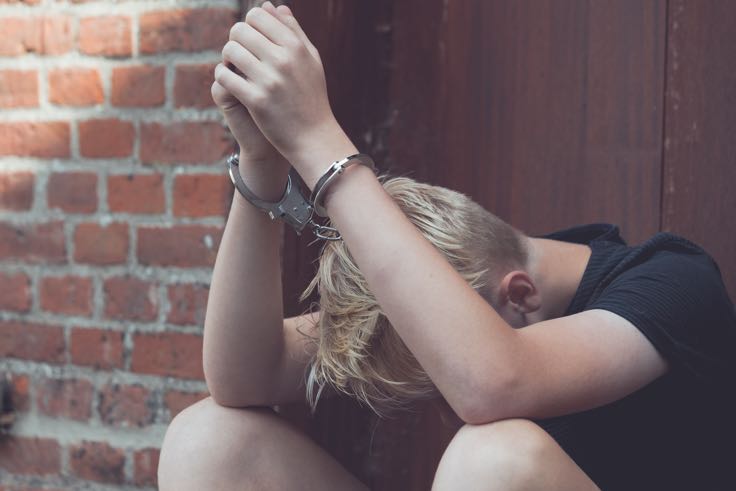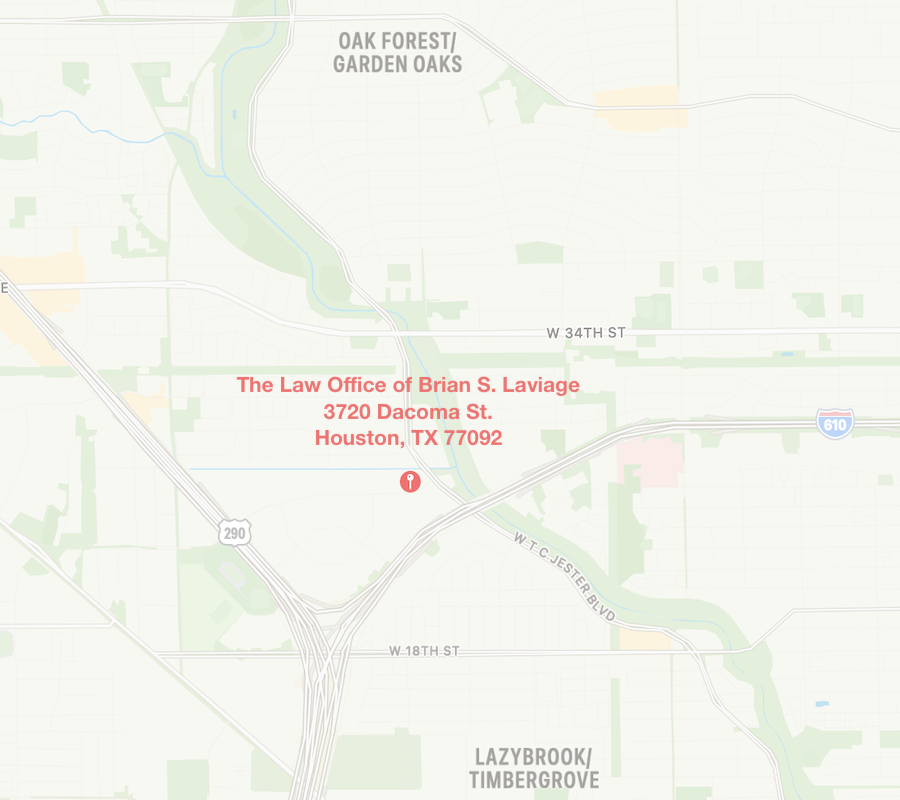
What Legal Rights Do Juveniles Have When Taken Into Police Custody in Texas?
Thursday, Feb 28, 2019 by Brian Laviage
Unlike adult criminal cases, juvenile crimes are handled in civil proceedings according to “The Juvenile Justice Code” within the Texas family code. In this system, the court is seeking what it deems as appropriate justice AND rehabilitation for the youth.
When a juvenile is taken into police custody in Texas, an experienced attorney should be notified immediately. This attorney will assist an offender and his or her parents or guardian by keeping the child out of adult court, offering a defense if a trial is warranted, and making an argument for a reasonable sentencing. Additionally, it is imperative that the accused offender and his or her parents understand the child’s legal rights.
How is a juvenile reported to local law enforcement?
Before getting into the steps a minor and his or her parents or guardian should take if the child is taken into police custody, it’s important to understand how reporting to local law enforcement takes place, and once reported, how police could choose to handle the situation.
First off, local law enforcement could be contacted by parents, the school district and its personnel, community officials or even a concerned citizen regarding a child’s conduct. Our law enforcement officials play a crucial role in determining whether or not a minor is referred to the juvenile justice system.
Additionally, a police officer has the authority to detain without having probable cause. Suspicion or a hunch that the child was involved in illegal activity is enough to hold them, and an arrest warrant is not required for a minor. Keep in mind, this does not apply to traffic offenses, but rather felony or misdemeanor offenses.
What happens if the juvenile is detained by local law enforcement?
The officer may choose to simply release the child into the custody of a parent or other responsible person who promises to bring the minor back before the juvenile court. If the child is truant, law enforcement could also bring the accused back to school if the district agrees to take the child. If medical attention is necessary, the police officer will release the minor to a medical facility or hospital.
The accused offender may be taken to a detention facility or a juvenile processing office. Legally, a minor can only be held at a processing office for up to six hours. A minor may be detained in a processing office only for (1) return of the child to a parent or other responsible adult; (2) completion of essential forms and records; (3) photographing and fingerprinting of the child if authorized; (4) issuance of warning to the child as required by law; or (5) taking a statement from the child.
What to do if a juvenile is detained?
Most importantly, the detained and his or her parents or guardian should immediately retain a lawyer experienced in juvenile defense. The law allows a juvenile to be questioned by law enforcement without a parent or legal representative, however, once the minor makes the request during interrogation, it must legally be honored by police and no further questions can be asked.
Police are also required by law to notify the parents or guardian of the arrest as they have the right to communicate in person with the minor for a reasonable period of time during the detainment.
It is important to recognize that the role of law enforcement is to investigate, ask questions and obtain any evidence to prove that a crime was committed. If the accused is being questioned by police, he or she should always be respectful and polite, but understand that anything the minor says will not remain confidential and could be used to gain a confession in the case.
Additionally, the minor should never be hostile toward any law enforcement officers investigating the charges, but he or she should remember that they have the right to remain silent. The minor should only truthfully answer basic questions about his or her identity and should not provide any additional information that could potentially implicate them until he or she has the opportunity to speak with their lawyer.
Minors should also remember that anyone he or she speaks with could be used as a witness against them, including friends, classmates or other detainees. He or she should only discuss their criminal case with their lawyer and parents or guardian.
Finally, the minor should never sign anything without first consulting their lawyer to ensure he or she understands what they are agreeing to in the document. Before making a written confession, the juvenile must receive their Miranda Rights – he or she may remain silent, has a right to an attorney, and can terminate the interview at any time.
It’s important to note that, regardless of the outcome of the case, his or her records can be sealed if certain requirements are met: - Successfully serves either misdemeanor or deferred adjudication probation and stays out of trouble. - Successfully serves felony probation, stays out of trouble and attains the age of nineteen.
A lawyer working in juvenile defense will file a motion with the court in the county that the minor served their probation. If successfully sealed, the offender will have the right to deny that he or she has ever been found delinquent by a court, and law enforcement must report that the minor does not have a criminal record.
Always retain a lawyer for juvenile offenses
A minor charged with an offense punishable via the juvenile system should always retain a lawyer for legal guidance and direction. To help their case, the minor and his or her parents or guardian should also provide as much information as possible about the alleged crime.
An experienced juvenile attorney will also attend all hearings and appearances set in the legal case. The lawyer will help the minor obtain the best deal possible and take the time to thoroughly explain all options and choices, while also helping to prevent future problems as a result of the case. At the end of the day, a lawyer should try to get the juvenile the best outcome possible and must strongly represent his or her interests to defend them as best as possible.

